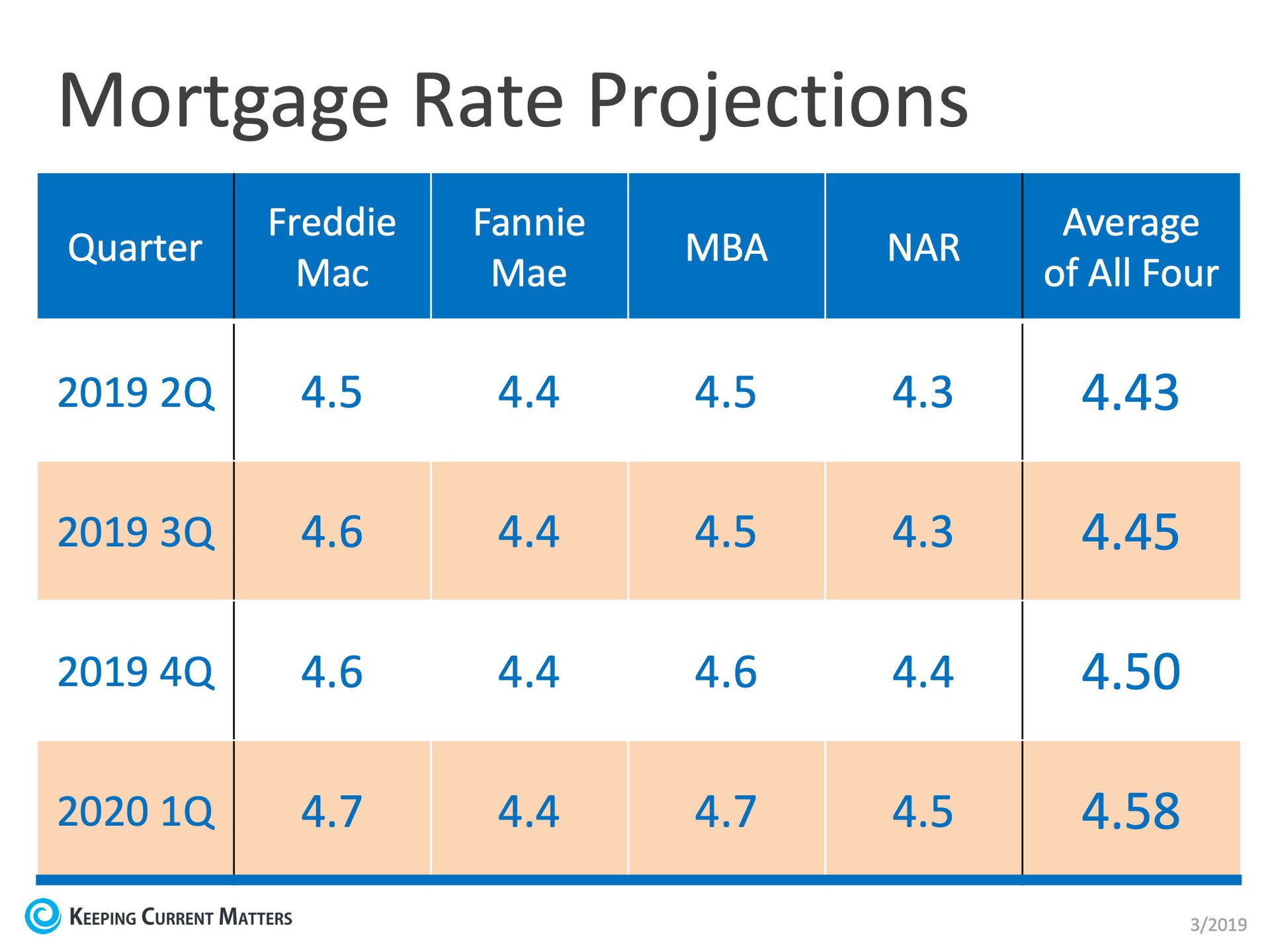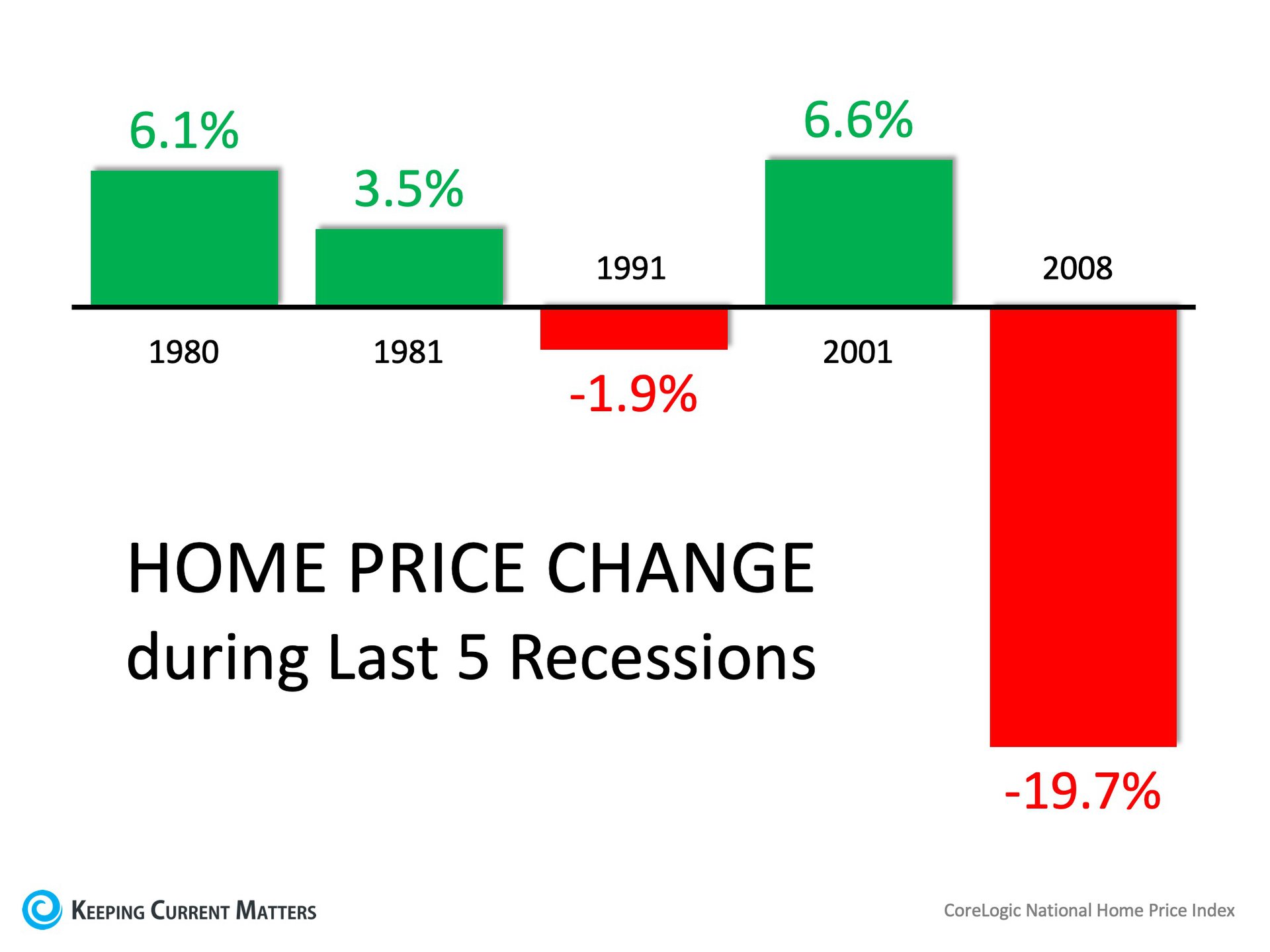
Tuesday, April 30, 2019
Renters Paying Substantially More While Owning Costs Less
In a recent Insights Blog, CoreLogic reported that rent prices have skyrocketed since 2005. Meanwhile, the typical mortgage payment has actually decreased.
“CoreLogic’s national rent index was up 36% in December 2018 compared with December 2005, while the typical mortgage payment was down 4% over that period.”
Why the difference between the costs of renting versus owning?
It makes sense that rents have risen. However, how did mortgage payments decrease? CoreLogicexplained:
“It’s mainly because mortgage rates back in December 2005 were significantly higher, averaging 6.3% for a fixed-rate 30-year loan, compared with 4.6% in December 2018.The national median sale price in December 2005 – $190,000 – was lower than the $220,305 median in December 2018, but because of higher mortgage rates in 2005 the typical monthly mortgage payment was slightly higher back then – $941 – compared with $904 in December 2018.”
Additionally, a recent report by the National Association of Realtors (NAR) showed that purchasing a home requires less of your monthly paycheck.
According to the Economists’ Outlook Blog, NAR’s February 2019 Housing Affordability Index showed that the “percentage of income needed” to pay the typical mortgage has decreased the last three months.
- November – 17.3%
- December – 16.9%
- January – 16.2%
- February – 15.9%
Bottom Line
What does this all mean to the current housing market? We think First American said it best in a post last week:
“The mortgage rate-driven affordability surge has arrived just in time… Rising affordability has already benefited home buyers and, if the lower rate environment persists, we’re in for a great spring home-buying season.”
Saturday, April 27, 2019
Friday, April 26, 2019
With Inventory Low: Will Your Dream Home Need Some TLC?
According to a new survey from Move.com, the wave of first-time homebuyers hitting the market this summer has resulted in an interesting statistic. Nearly 60% of buyers searching for a home this spring are willing to consider buying a fixer-upper, with 95% believing that the projects needed will increase their new home’s value!
Realtor.com’s Chief Economist, Danielle Hale, pointed to low-inventory at the entry-level price range for the increase in willingness to renovate.
“The combination of rising home prices and limited entry-level homes for sale is prompting many home shoppers to consider homes that need renovating.Replete with inspiration at their fingertips – like Pinterest, Instagram, and various home renovation TV shows – some home shoppers are comfortable tackling home renovation jobs to find a home that balances their needs with their budget.”
Just over half of all respondents who said they would be willing to buy a home in need of some TLC, would also spend more $20,000 to make the home fit their needs.
The most common ‘expected’ renovation is a kitchen remodel which can run anywhere from $22,000 for a minor remodel to $66,000 for a major remodel.
This isn’t a new trend by any means. According to the Joint Center for Housing Studies at Harvard University,home improvement project spending reached a new high in 2018.
“Americans spent $336.9 billion on remodeling projects, up 7.4% from the $313.6 billion a year earlier.”
Home renovation television shows have given many buyers hope that they could renovate a home they can afford into their dream home!
Bottom Line
If you are one of the many Americans considering buying a home this spring, meet with a local real estate professional who can help you find a house with the potential to be your dream home!
Home Buyer Demand Will Be Strong For Years To Come
There has been a lot written about millennials and their preference to live in city centers above their favorite pizza place. Some have even gone so far as to say that millennials are a “Renter-Generation”.
And while this might be true for some millennials, more and more research has surfaced that shows for the vast majority, owning a home is a major part of their American Dream!
New research shows that 66% of millennials who currently rent are determined to buy a home! Seventy-three percent of those surveyed by Pulsenomics plan to buy a home in the next five years, with 40% planning to do so within the next two years!
“Millennials want to own a home as much as prior generations,” Ali Wolf, Director of Economic Research at Meyers Research says. “We saw millennial shoppers scooping up homes in 2018—and 2019 will be no different.”
Bottom Line
Are you one of the millions of renters who are ready and willing to buy a home? Meet with a local real estate professional who can help determine your ability to buy now!
Wednesday, April 24, 2019
10 Steps To Buying A Home [INFOGRAPHIC]
Some Highlights:
- If you are thinking of buying a home, you may not know where to start.
- Here is a simple list of 10 steps that you will go through to purchase a home.
- Make sure to ask your agent for details about each step and what else may be required in your area!
Tuesday, April 23, 2019
Monday, April 22, 2019
3 Questions You Need To Ask Before Buying A Home
If you are debating purchasing a home right now, you are probably getting a lot of advice. Though your friends and family have your best interests at heart, they may not be fully aware of your needs and what is currently happening in the real estate market.
Ask yourself the following three questions to help determine if now is a good time for you to buy in today’s market.
1. Why am I buying a home in the first place?
This is truly the most important question to answer. Forget the finances for a minute. Why did you even begin to consider purchasing a home? For most, the reason has nothing to do with money.
For example, a study by realtor.com found that “73% said buying in a good school district was “important” in their search.”
This report supports a study by the Joint Center for Housing Studies at Harvard University which revealed that the top four reasons Americans buy a home have nothing to do with money. The actual reasons are:
- A good place to raise children and provide them with a good education
- A place where you and your family feel safe
- More space for you and your family
- Control of that space
What does owning a home mean to you? What non-financial benefits will you and your family gain from owning a home? The answer to that question should be the biggest reason you decide to purchase or not.
2. Where are home values headed?
According to the latest Existing Home Sales Report from the National Association of Realtors (NAR), the median price of homes sold in February (the latest data available) was $249,500. This is up 3.6% from last year. The increase also marks the 84th consecutive month with year-over-year gains.
Looking at home prices year over year, CoreLogic is forecasting an increase of 4.6%. In other words, a home that costs you $250,000 today will cost you an additional $11,500 if you wait until next year to buy it.
What does that mean to you?
Simply put, with prices increasing, it may cost you more if you wait until next year to buy. Your down payment will also need to be higher in order to account for the higher price of the home you wish to buy.
3. Where are mortgage interest rates headed?
A buyer must be concerned about more than just prices. The ‘long-term cost’ of a home can be dramatically impacted by even a small increase in mortgage rates.
Freddie Mac, Fannie Mae, the Mortgage Bankers Association and NAR have all projected that mortgage interest rates will increase over the next twelve months, as you can see in the chart below:
Bottom Line
Only you and your family will know for certain if now is the right time to purchase a home. Answering these questions will help you make that decision.
Sunday, April 21, 2019
Friday, April 19, 2019
Thursday, April 18, 2019
Wednesday, April 17, 2019
Tuesday, April 16, 2019
Monday, April 15, 2019
Sunday, April 14, 2019
Friday, April 12, 2019
Thursday, April 11, 2019
Wednesday, April 10, 2019
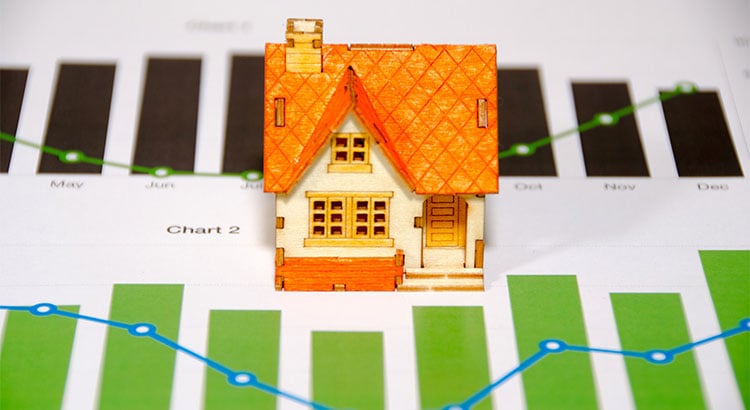 Last week, realtor.com released a survey of active home shoppers (those who plan to purchase their next home in 1 year or less). The survey asked their opinion on an impending recession and its possible impact on the housing market.
Last week, realtor.com released a survey of active home shoppers (those who plan to purchase their next home in 1 year or less). The survey asked their opinion on an impending recession and its possible impact on the housing market.
Two major takeaways from the survey:
- 42% believe a recession will occur this year or next (another 16% said 2021)
- 59% believe the housing market would fare the same or worse than it did in 2008
Why all the talk about a recession recently?
Over the last year, four separate surveys have been taken asking when we can expect the next recession to occur:
- The Pulsenomics Survey of Market Analysts
- The Wall Street Journal Survey of Economists
- The Duke University Survey of American CFOs
- The National Association of Business Economics
70% of all respondents to the four surveys believe that a recession will occur in 2019 or 2020 with an additional 18% saying 2021.
However, we must realize that a recession does not mean we will experience another housing crash. According to the dictionary definition, a recession is:
“A period of temporary economic decline during which trade and industrial activity are reduced, generally identified by a fall in GDP in two successive quarters.”
During the last recession, a dramatic fall in home values helped cause it.
However, according to research done by CoreLogic, home values weren’t negatively impacted as they were in 2008 during the previous four recessions:
During the four recessions prior to 2008, home values depreciated only once (at a level that was less than 2%). The other three times home values appreciated, twice well above the historic norm of 3.6%.
Bottom Line
If there is an economic slowdown in our near future, there is no need for fear to set in. Most experts agree with Ralph McLaughlin, CoreLogic’s Deputy Chief Economist, who recently explained that there’s no reason to panic right now, even if we may be headed for a recession.
“We’re seeing a cooling of the housing market, but nothing that indicates a crash.”
Tuesday, April 9, 2019
Monday, April 8, 2019
5 Reasons to Sell Your Home This Spring
 Here are five compelling reasons listing your home for sale this spring makes sense.
Here are five compelling reasons listing your home for sale this spring makes sense.1. Demand Is Strong
The latest Buyer Traffic Index from the National Association of Realtors (NAR) shows that buyer demand remains strong throughout the vast majority of the country. These buyers are ready, willing, and able to purchase… and are in the market right now! More often than not, multiple buyers are competing with each other for the same home.
Take advantage of the buyer activity currently in the market.
2. There Is Less Competition Now
Housing inventory is still under the 6-month supply needed for a normal housing market. This means that, in most of the country, there are not enough homes for sale to satisfy the number of buyers.
Historically, the average number of years a homeowner stayed in his or her home was six, but that number has hovered between nine and ten years since 2011. Many homeowners have a pent-up desire to move, as they were unable to sell over the last few years due to a negative equity situation. As home values continue to appreciate, more and more homeowners are granted the freedom to move.
Many homeowners were reluctant to list their home over the last couple of years for fear that they would not find a home to move in to. That is all changing now as more homes come to market at the higher end. The choices buyers have will continue to increase. Don’t wait until additional inventory comes to market before you to decide to sell.
3. The Process Will Be Quicker
Today’s competitive environment has forced buyers to do all they can to stand out from the crowd, including getting pre-approved for their mortgage financing. Buyers know exactly what they can afford before home shopping. This makes the entire selling process much faster and simpler. According to Ellie Mae’s latest Origination Insights Report, the time to close a loan has dropped to 47 days.
4. There Will Never Be a Better Time to Move Up
If your next move will be into a premium or luxury home, now is the time to move up! The inventory of homes for sale at these higher price ranges has created a buyer’s market. This means that if you are planning on selling a starter or trade-up home, it will sell quickly, AND you’ll be able to find a premium home to call your own!
According to CoreLogic, prices are projected to appreciate by 4.6% over the next year. If you are moving to a higher-priced home, it will wind up costing you more in raw dollars (both in down payment and mortgage payment) if you wait.
5. It’s Time to Move on With Your Life
Look at the reason you decided to sell in the first place and determine whether it is worth waiting. Is money more important than being with family? Is money more important than your health? Is money more important than having the freedom to go on with your life the way you think you should?
Only you know the answers to these questions. You have the power to take control of the situation by putting your home on the market. Perhaps the time has come for you and your family to move on and start living the life you desire.
That is what is truly important.
Subscribe to:
Comments (Atom)

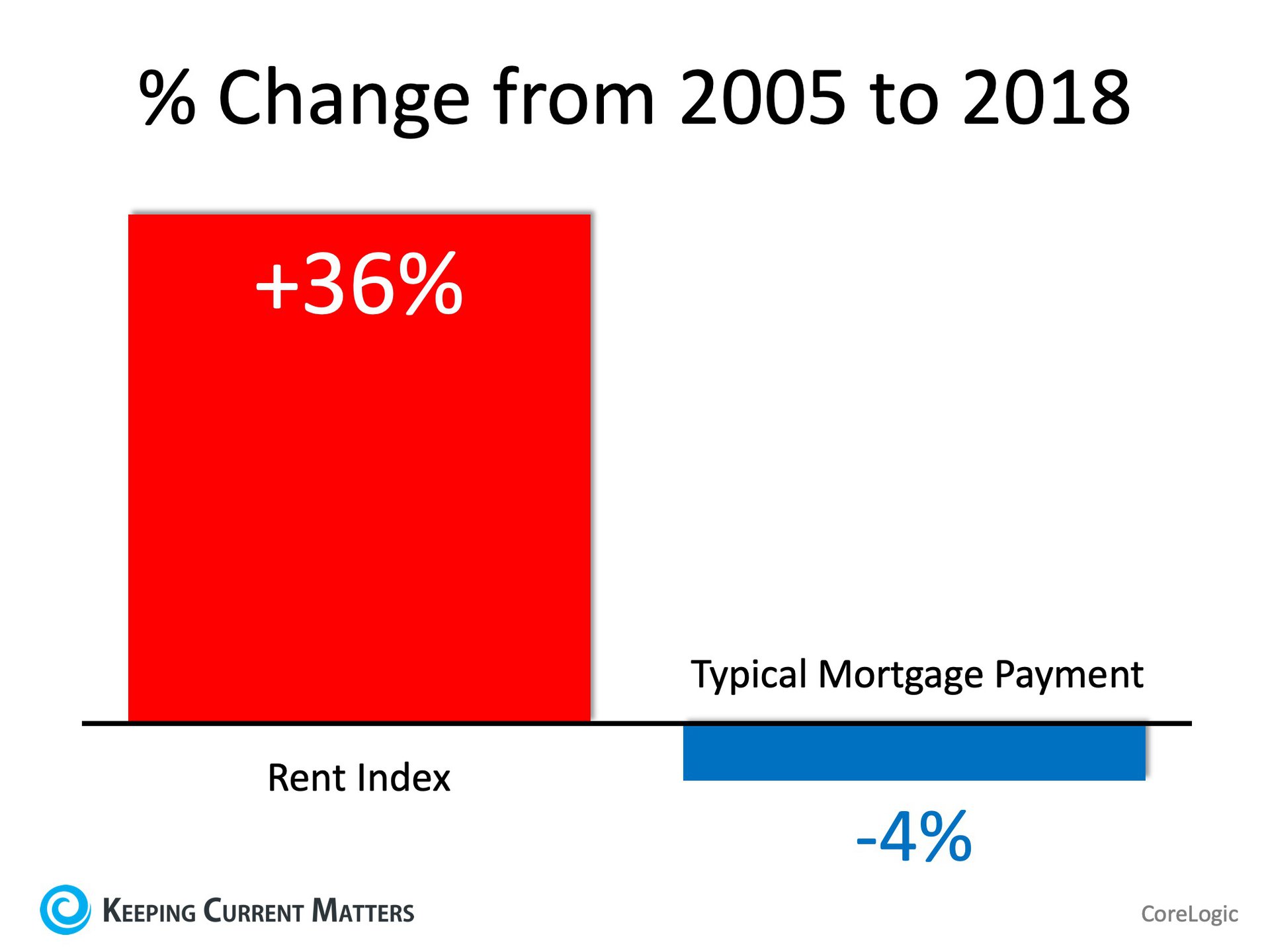


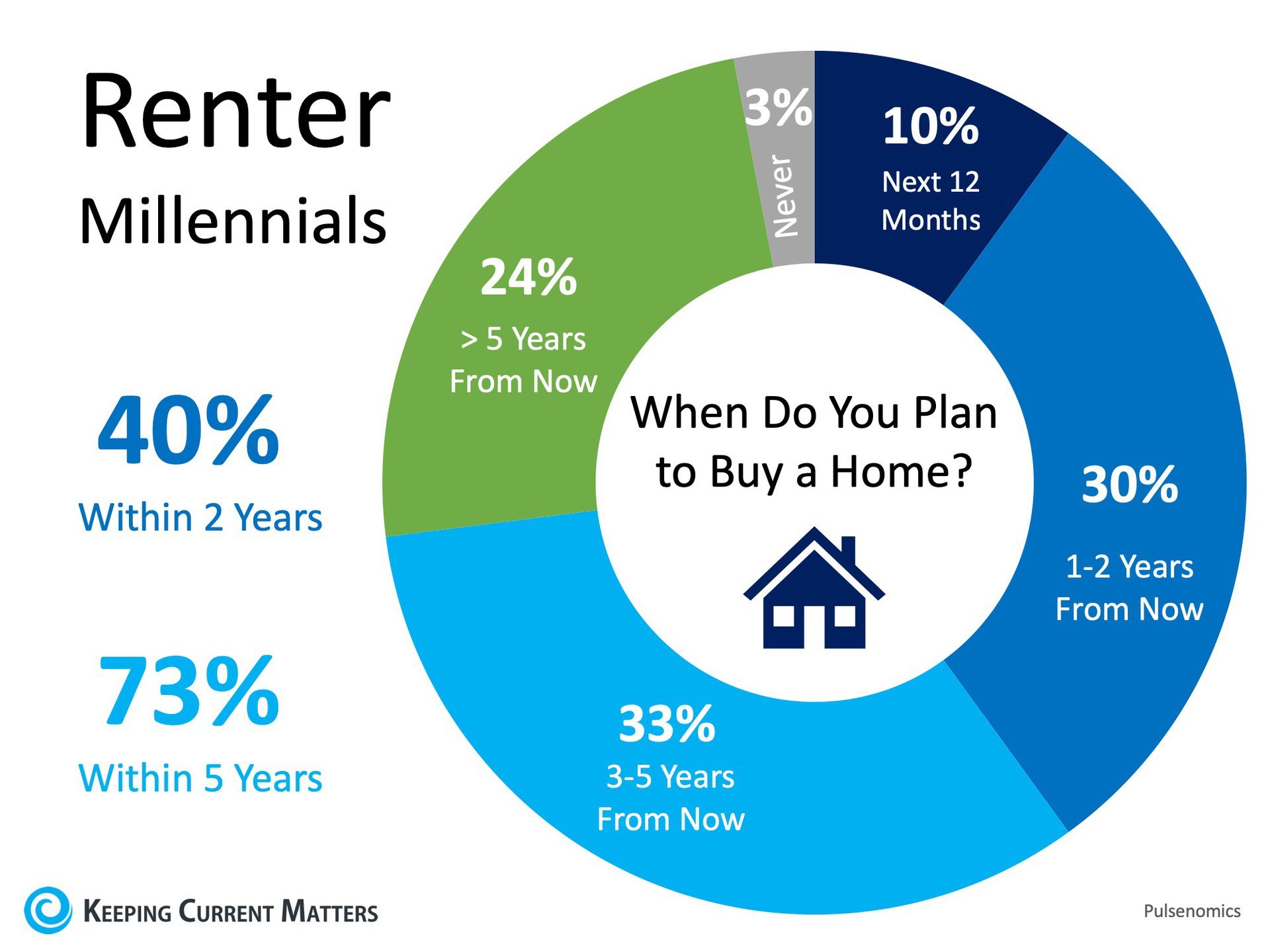

![10 Steps to Buying a Home [INFOGRAPHIC] | Keeping Current Matters](https://files.keepingcurrentmatters.com/wp-content/uploads/2019/03/28150453/20190329-10-Steps-KCM.jpg)


